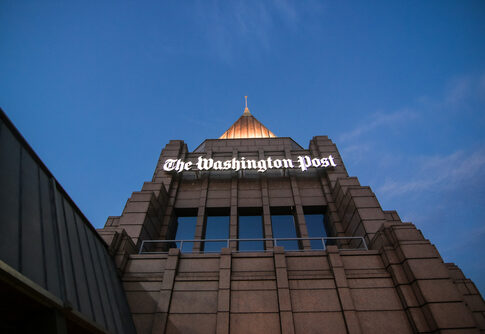Tulsi Gabbard, Director of National Intelligence under the Trump administration, has publicly accused Washington Post reporter Ellen Nakashima of harassment and deceptive practices. In a fiery post on X, Gabbard claimed Nakashima used a burner phone to contact intelligence officials, refused to identify herself properly, and even harassed Gabbard’s family in Hawaii. Will this public dispute affect the relationship between the intelligence community and the Washington Post?
Allegations and Counter-Claims
Tulsi Gabbard has leveled serious accusations against Washington Post reporter Ellen Nakashima, claiming the journalist engaged in “deranged behavior” while attempting to gather information from intelligence officials. Gabbard specifically alleged that Nakashima used a burner phone to contact high-level intelligence officers, refused to identify herself properly, and falsely denied her affiliation with the Washington Post while seeking sensitive information.
The accusations extend beyond professional boundaries, with Gabbard claiming Nakashima also harassed her family in Hawaii, though no evidence was provided to substantiate this claim. “Instead of reaching out to my press office, she is calling high level intelligence officers from a burner phone, refusing to identify herself, lying about the fact that she works for the Washington Post, and then demanding they share sensitive information,” Gabbard stated in her public criticism.
The Washington Post has firmly rejected these allegations, with Executive Director Matt Murray defending Nakashima’s journalistic practices. “For three decades, Ellen Nakashima has been one of the most careful, fair-minded, and highly regarded reporters covering national security,” Murray stated, adding that “Reaching out to potential sources rather than relying solely on official government press statements regarding matters of public interest is neither nefarious nor is it harassment. It is basic journalism.”
It has come to my attention that Washington Post reporter @nakashimae appears to be actively harassing ODNI staff. Instead of reaching out to my press office, she is calling high level Intelligence Officers from a burner phone, refusing to identify herself, lying about the fact…
— DNI Tulsi Gabbard (@DNIGabbard) July 3, 2025
Media Ethics Under Scrutiny
Gabbard’s accusations come amid her criticism of what she perceives as media bias against the Trump administration. She directly accused Nakashima and the Washington Post of being “desperate to sabotage [Trump’s] successful agenda” and abandoning “even a facade of journalistic integrity and ethics.”
Former colleagues of Nakashima have come to her defense, including David Weigel, who stated it was “not credible” that Nakashima would lie about her employer. Nakashima, a Pulitzer Prize-winning journalist who has worked at the Post since 1995, has previously reported on Gabbard, including stories about alleged illegal interference in the Intelligence Community Inspector General’s office.
The dispute has drawn additional voices from the intelligence community, with former National Security Advisor Michael Flynn supporting Gabbard’s claims. Flynn, who has his history with Nakashima’s reporting, called for the Washington Post to be restricted from government facilities, escalating the rhetoric surrounding the confrontation.
Gabbard accuses WaPo reporter of harassing staff, lying to solicit sensitive info
WaPo is one of the worst rags ever!
Director of National Intelligence Tulsi Gabbard on Thursday publicly accused Washington Post reporter Ellen Nakashima of harassing her staff and… pic.twitter.com/Y9TY8unCUX
— NWRain-Judi (@RYboating) July 3, 2025
Broader Implications for Government-Press Relations
This high-profile clash represents more than just a personal dispute between a government official and a reporter. It highlights the tension that often exists between national security interests and press freedom, raising questions about how journalists should approach intelligence reporting.
Investigative journalist Mollie Hemingway has accused Nakashima of past unethical journalistic behavior, citing a 2017 incident involving leaks about Michael Flynn. These allegations further complicate the narrative, suggesting deeper historical conflicts between certain intelligence officials and specific journalists.
The Washington Post has a long history of reporting on classified information, including the Pentagon Papers and Watergate investigations. Gabbard’s criticism of this practice reflects a perspective held by many in the intelligence community who believe such reporting can compromise national security interests.
As this situation unfolds, it serves as a reminder of the delicate balance between government transparency and operational security. The responsibility falls on both government officials to maintain appropriate channels for press inquiries and on journalists to respect legal and ethical boundaries when pursuing sensitive stories.

